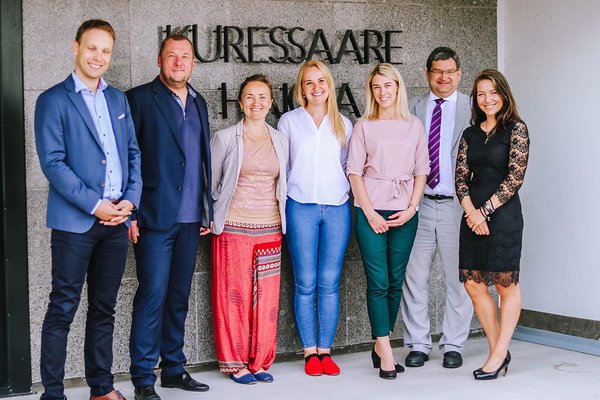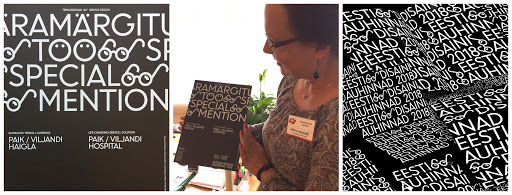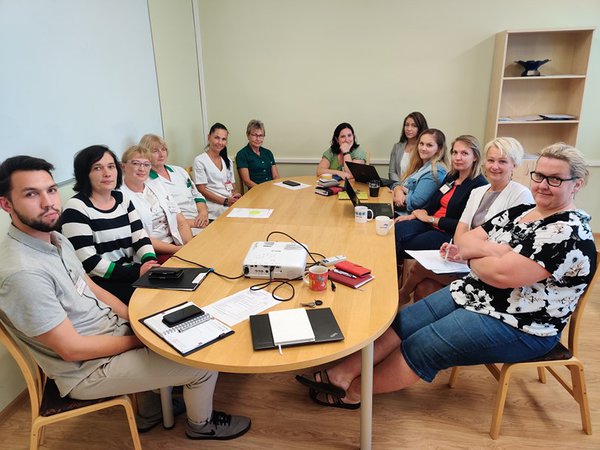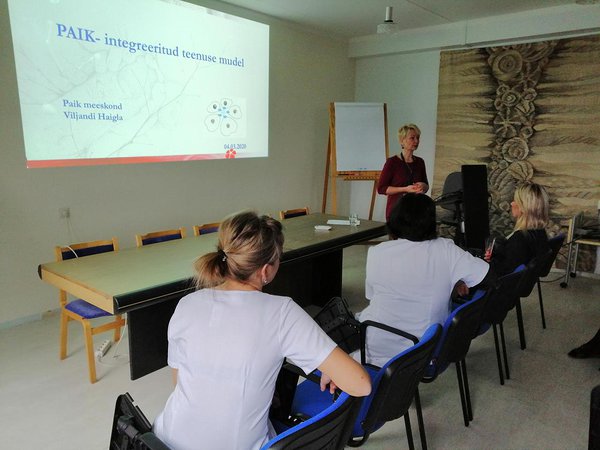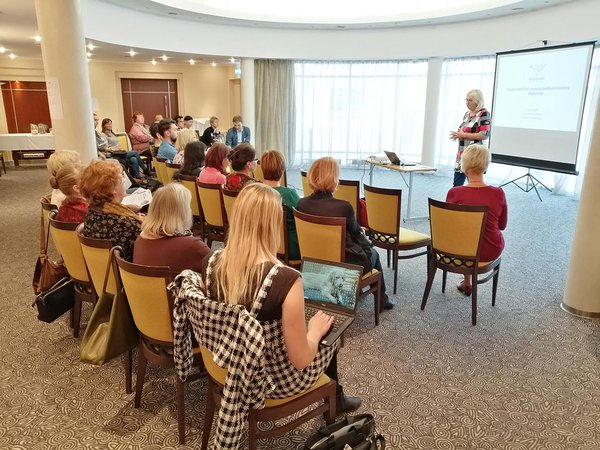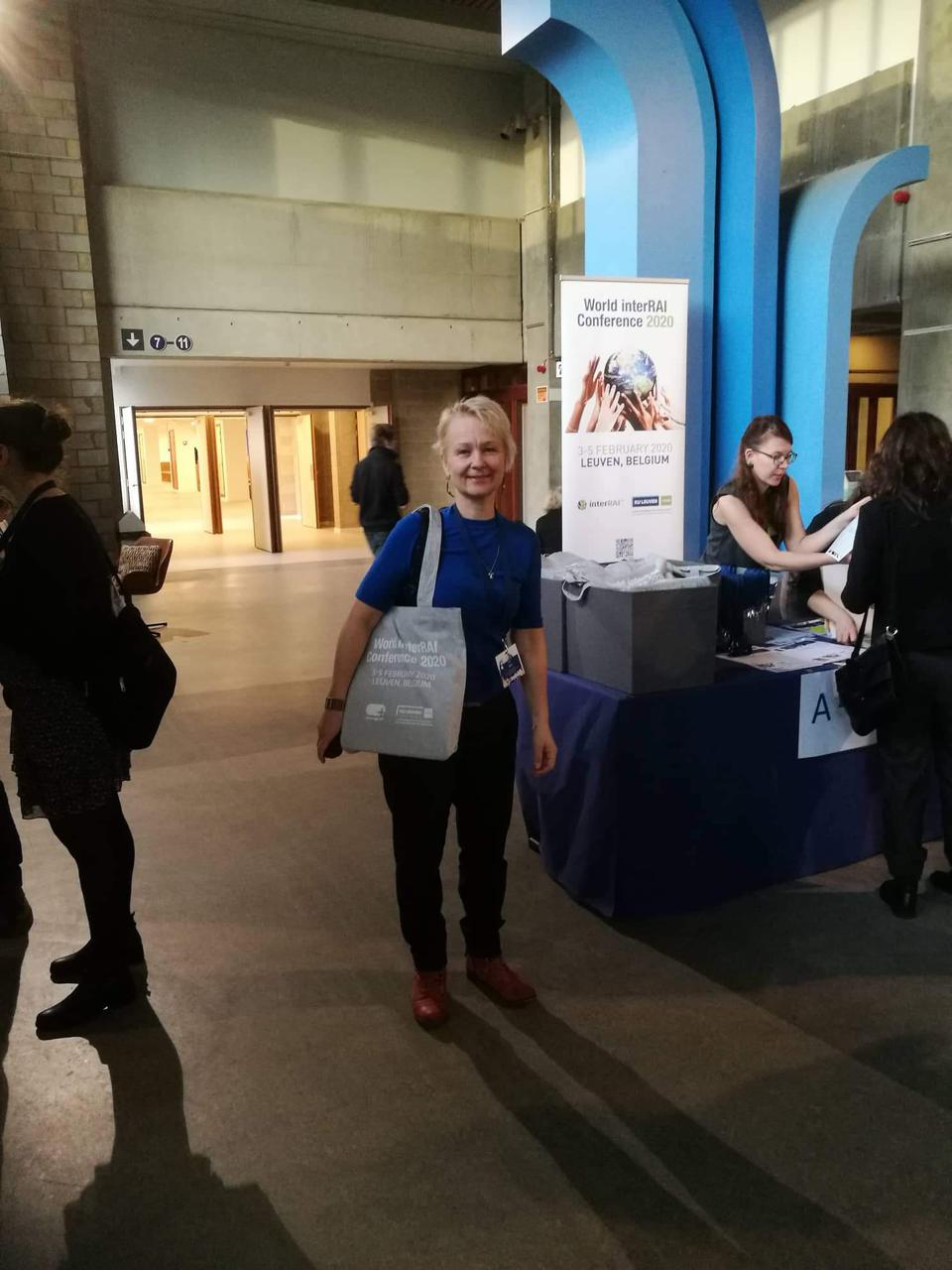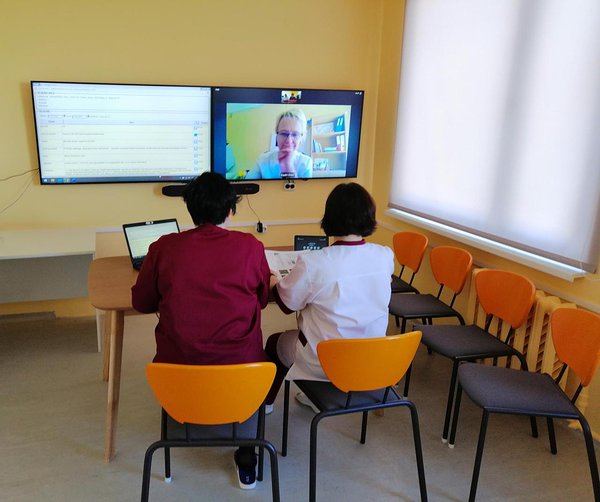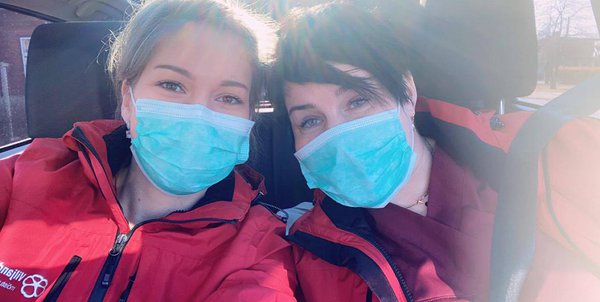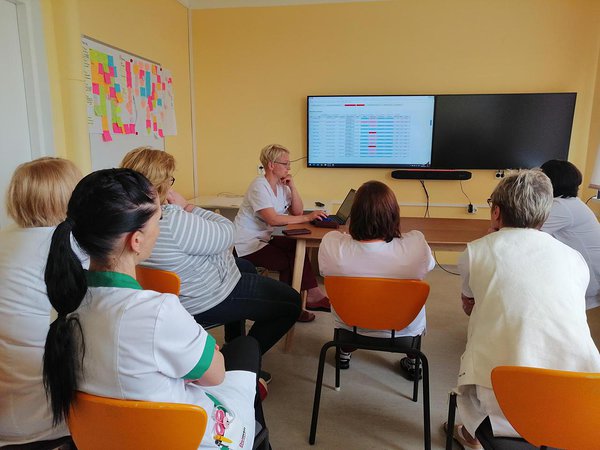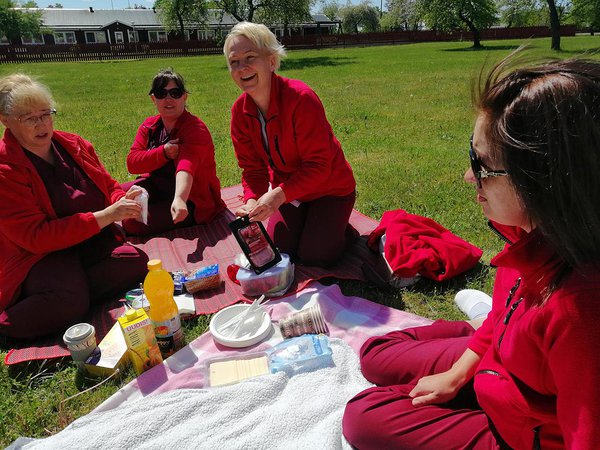For the purposes of the PAIK service, service
providers are the healthcare and social work specialists and volunteers in the
patient's network. Specialists are involved in the team based on the patient's
need for help and their consent.
The PAIK health manager is a social worker or a
specialist trained as a nurse who will perform and coordinate the preparation
of the patient's health plan and the monitoring thereof. The health manager
takes a team-based approach to work with people with chronic disease, their
support network, providers of health and social services and the community's
resources in order to help patients manage in their own homes.
Of the four PAIK health managers in Viljandi
Hospital's PAIK team, two are qualified nurses and two are qualified social
workers.
Family physicians, family nurses and local government
social workers are important members of the clients' networks and take part in
network meetings as agreed with the health manager and based on circumstantial
need (by phone, videocall or participating in network meetings in person).
Provision of the PAIK service
PAIK patients in the hospital, during doctors'
appointments, in the local government or at home.
the patient's needs comprehensively – their ailments,
social issues, day-to-day life, mood and attitudes.
any necessary activities, the team and a time
schedule.
professionally and in any vital way, keeping
interactions simple and kind.
Content of service
Patients' suitability for the project is assessed based
on agreed criteria. A family physician or a specialist may refer the patient to
receive the service.
The PAIK health manager will introduce the content of
the service to the patient and determine the need for the service with the
patient. The patient signs a consent form.
The PAIK health manager will assess the health of the
patient and their ability to manage together with the patient by employing
various assessment instruments, medical documentation and specialist
assessments. This is then used to outline important issues and the patient's
goals.
A support network of specialists is assembled based on
the patient's needs. The network is a team that supports the treatment and
management of the patient and is comprised of a family physician, a family nurse,
the patient's loved ones, a social worker, (a) local government
representative(s), a home nurse, a physiotherapist and other specialists that
help the patient manage better (e.g. nutritional specialist, pharmacist,
neighbour), who are added to the network based on the needs and consent of the
patient. Patients are the most important members of the network.
Together, the network agrees on an action plan to look
after and provide the best possible support for the health of the patient, i.e.
the patient's health plan is drawn up. The patient's health plan contains the
patient's objectives and potential actions for reaching those objectives. The
health plan is a common agreement between the members of the network to support
the patient's health, their ability to cope and their need for help as well as
to meet the patient's personal objectives.
The health manager monitors and supports the execution
of the action plan and regularly contacts the patients and network members.
The central idea behind the provision of integrated
services is ensuring communication between service providers. IT solution
Teleskoop was created to this end. Teleskoop is an extra module to the
hospital's information system that intermediates essential information about
people between the members of the integrated services team. Teleskoop
establishes a common information field between parties.
Establishing contact -> Considering needs and
objectives -> Joint planning -> Coordinating services -> Communication
